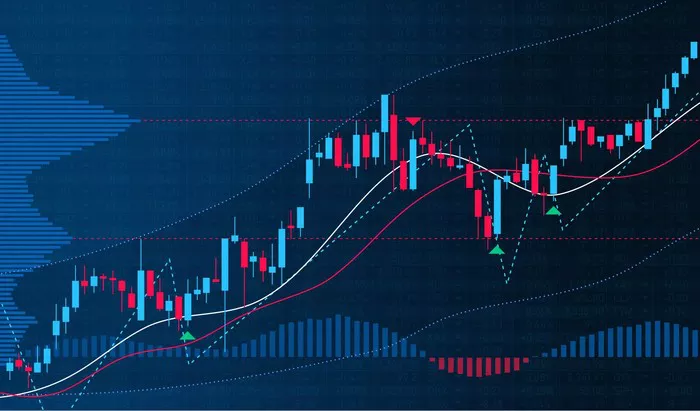Hargreaves Lansdown (HL) is one of the UK’s leading investment platforms, providing services for self-directed investors. Founded in 1981, the company has gained a reputation for its user-friendly platform and extensive investment options. However, like many companies in the financial services sector, HL’s share price has experienced fluctuations. This article explores the reasons behind the falling share price of Hargreaves Lansdown, examining various factors that contribute to its market performance.
Understanding Hargreaves Lansdown’s Business Model
Overview of Services Offered
Hargreaves Lansdown provides a range of services to individual investors, including investment accounts, stocks and shares ISAs, and pensions. The company primarily earns revenue through platform fees and commission on trading. With its extensive resources, HL has become a go-to platform for many UK investors looking to manage their portfolios efficiently.
The Importance of Customer Base
Hargreaves Lansdown’s success heavily relies on its customer base. The firm has millions of clients who trust it for their investment needs. A strong client relationship often translates into steady revenue streams. Therefore, any changes in investor sentiment or behavior can significantly impact the company’s financial health.
Recent Market Trends
Economic Uncertainty
The global economy has faced significant uncertainty over the past few years. Factors such as inflation, interest rate changes, and geopolitical tensions have created a volatile market environment. Hargreaves Lansdown is not immune to these changes. Economic instability often leads to a reduction in trading volumes and a decline in investor confidence.
Rising Interest Rates
One significant factor contributing to HL’s declining share price is the rise in interest rates. Central banks, including the Bank of England, have increased rates to combat inflation. Higher interest rates can lead to reduced disposable income for consumers, impacting their ability to invest. Consequently, this environment may lead to lower transaction volumes on investment platforms like Hargreaves Lansdown.
Competition in the Investment Sector
Increased Market Competition
The investment platform industry has become increasingly competitive. New entrants and existing companies continually innovate to attract clients. Many platforms offer lower fees and enhanced services to lure customers away from established firms like Hargreaves Lansdown. This competitive landscape puts pressure on HL to maintain its pricing and service offerings, which can impact profitability.
The Rise of No-Fee Platforms
The emergence of no-fee trading platforms has changed the dynamics of the investment industry. Platforms like Robinhood and Trading 212 have gained popularity by eliminating trading commissions. As more investors turn to these platforms, traditional firms like Hargreaves Lansdown may see a decline in user activity, impacting revenue.
Company-Specific Challenges
Changes in Revenue Streams
Hargreaves Lansdown’s revenue model is primarily based on platform fees and trading commissions. If trading volumes decline due to market volatility, the company may face challenges in meeting revenue targets. This reliance on a limited range of income sources can make HL vulnerable to fluctuations in investor activity.
Regulatory Environment
The financial services industry is subject to extensive regulation. Changes in regulations can impact how companies operate. Hargreaves Lansdown must navigate these regulations while ensuring compliance. Any negative perception related to regulatory changes can affect investor confidence, leading to a decline in share price.
Investor Sentiment
Market Sentiment and Investor Behavior
Investor sentiment plays a significant role in the performance of Hargreaves Lansdown’s shares. Negative news, whether related to the economy or the company itself, can lead to a sell-off. As market sentiment becomes pessimistic, investors may choose to exit their positions, further driving down the share price.
Impact of Earnings Reports
Earnings reports are crucial for investor sentiment. If Hargreaves Lansdown’s quarterly results show lower-than-expected revenues or profits, it can lead to a sharp decline in share price. Investors often react swiftly to such news, causing further volatility in the stock.
see also: How to Invest in Amazon Stock with Little Money
Financial Performance Indicators
Revenue Decline
A closer look at Hargreaves Lansdown’s financials may reveal a decline in revenues. If the company reports lower revenues than in previous periods, it may indicate a problem with attracting new customers or retaining existing ones. Such a trend can negatively affect investor confidence and lead to a drop in share price.
Trading Volumes
Trading volumes are a critical indicator of the platform’s health. If Hargreaves Lansdown experiences lower trading volumes, it suggests that investors are less active. This can be caused by market conditions, investor sentiment, or increased competition. A sustained decline in trading volumes will likely impact revenue and share price.
Long-Term Prospects
Adaptability and Innovation
Despite the challenges, Hargreaves Lansdown has a track record of adaptability. The company continually invests in technology and innovation to improve its platform. By enhancing user experience and expanding its service offerings, HL can attract and retain clients. This adaptability is crucial for navigating a competitive landscape.
Market Recovery Potential
The financial markets are cyclical. Economic downturns and periods of uncertainty are often followed by recoveries. Hargreaves Lansdown could benefit from an upturn in market conditions. As investor confidence returns, trading volumes may increase, positively impacting revenue and share price.
Conclusion
In conclusion, Hargreaves Lansdown’s share price decline can be attributed to various factors. Economic uncertainty, rising interest rates, increased competition, and company-specific challenges all play significant roles. Additionally, investor sentiment and financial performance indicators are crucial in understanding the current market dynamics.
Despite these challenges, Hargreaves Lansdown has the potential for recovery. By focusing on innovation and adaptability, the company can navigate this turbulent environment. As market conditions improve, there may be opportunities for Hargreaves Lansdown to regain its footing and enhance its share price. Understanding the multifaceted nature of these issues can help investors make informed decisions about their investments in Hargreaves Lansdown.
Related topics:


